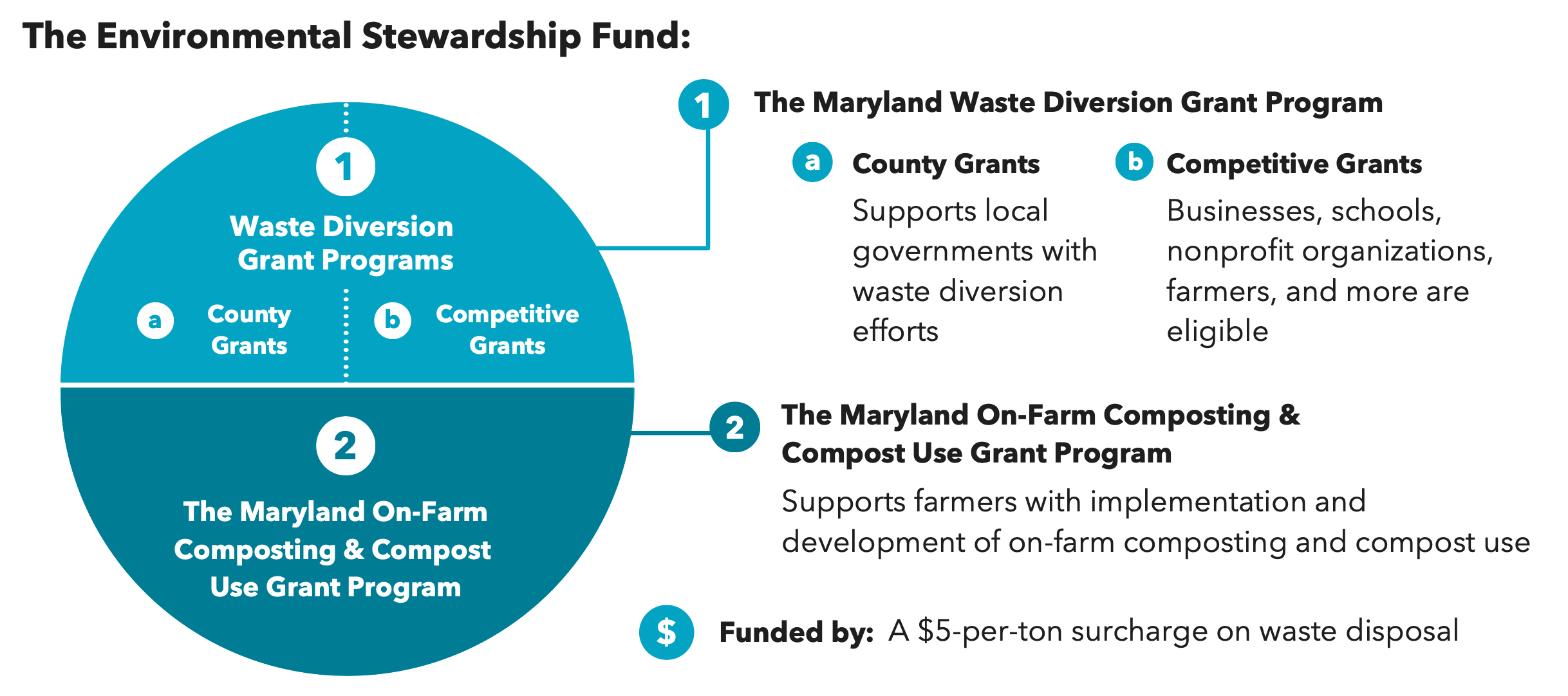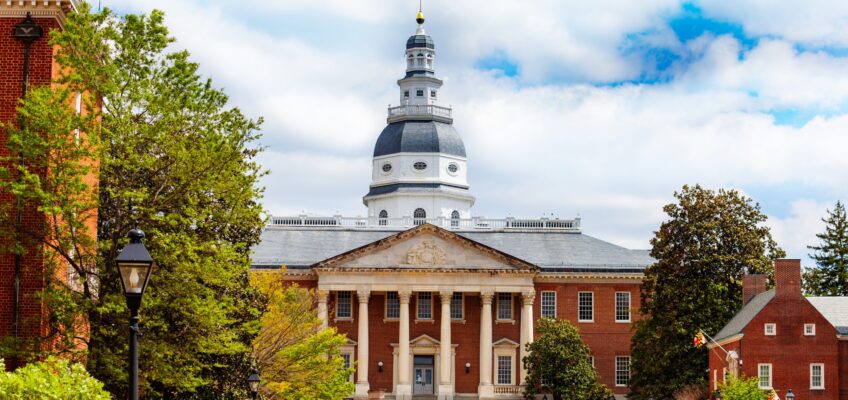Building on successes of the 2021 legislative session, and continuing our years-long work with Maryland state officials and legislators to encourage composting, waste diversion, and healthy soils in the state, ILSR’s Composting for Community team has worked closely with Delegate Regina T. Boyce (District 43, Baltimore City) to introduce the Solid Waste Disposal and Diversion and On-Farm Composting and Compost Use bill (HB 1070) for Maryland’s 2022 legislative session.
The bill addresses the critical need for investment into waste reduction and diversion programs and infrastructure in Maryland by establishing a major grant funding program based on a nominal surcharge on waste disposal. Numerous other states, such as those featured in our recent webinar, have similar successful grant programs in place with positive impacts on their local communities, economies, and the environment. So why not in Maryland?
The grants could total more than $30 million per year to support local governments, small businesses, non-profits, schools, farmers, and more in their efforts to advance waste prevention, reuse, repair, recycling, composting, and anti-dumping projects and infrastructure.

Why is this bill important NOW?
- Maryland’s new law (2021 HB 264) mandates that Large Food Waste Generators divert wasted food from disposal. The influx of diverted food waste will require expanded processing capacity. Without support for community-oriented and farm projects, Maryland may end up privileging industrial, large-sized facilities.
- A 2021 report revealed that Maryland landfills are emitting four times more methane than previously estimated, underscoring the need to divert wasted food from landfills.
- Enormous amounts of U.S. resources are wasted due to food waste, with critical environmental implications.
- A 2019 MDE study group report recommends the provision of statewide education and support for on-farm composting, to increase manure management efficiency and build agricultural soil health.
Who and What will benefit from this bill?
- Local Businesses and Communities – This bill will make grant funds accessible to small businesses (e.g., restaurants, multi-family housing properties, and small haulers) interested in developing or expanding their waste diversion efforts, with priority funding going to low-income, socially disadvantaged, female, and/or veteran farmers, business owners, and communities. Existing Maryland composters are eager to work with participating businesses and farmers.
- Farmers – Farmers will benefit from grant funds to develop and improve their composting systems, meaning they can create a product that improves their soil health and farm profitability.
- Maryland Counties – Counties will receive dedicated grant funds for waste diversion and alternative waste management options, and be in a better position to extend the life of their landfills (Maryland landfills are due to reach capacity in just 25 years). 1
- Anti-illegal Dumping – Projects addressing illegal dumping will also be eligible for grant funding (including but not limited to community and river clean-ups, support for small haulers, surveillance, drop-off recycling bins, and recycling centers that accept a wide range of materials).
Click here for a one-page summary of the bill’s proposed grant programs and FAQs
It is critical to share with Maryland’s elected leaders that supporting waste diversion and on-farm composting in Maryland is important to you.
—
CLICK HERE to sign on in support of this bill
Organizations that have signed on in support of this bill include: ILSR, Chesapeake Bay Foundation, MD-DC Compost Council, Maryland Clean Water Action, Blue Water Baltimore, Go Green OC / The Hobbit Restaurant, Natural Resources Defense Council, WWFUS, Curtis Bay Community Association, Cedar Lane Environmental Justice Ministry, Echotopia LLC, Kent Island Beach Cleanups, Greenbelt Climate Action Network, Zero Waste USA, Fair Farms Maryland (Waterkeepers Chesapeake), Maryland Campaign for Human Rights, Maryland Horse Council, Maryland Legislative Coalition, MLC – Climate Justice Wing, Possibility Farm, The Surfrider Foundation, D.C. Chapter, and the Unitarian Universalist Legislative Ministry of Maryland
*March 2022 update: This bill will likely be reintroduced in the 2023 session. Please feel free to sign on in support to help build momentum for next year!
Use our model legislation template to introduce a policy like these in your own state or locality
——————————————-





